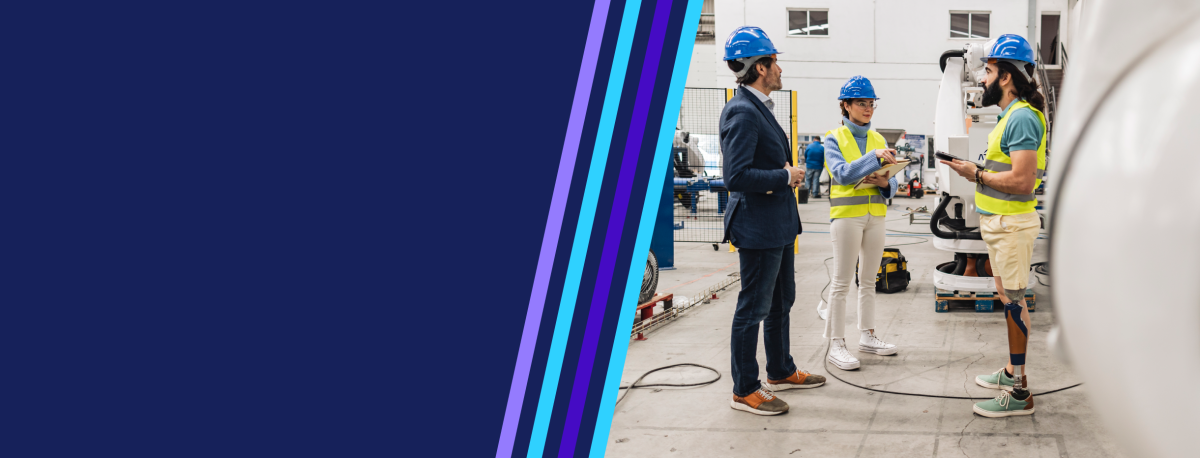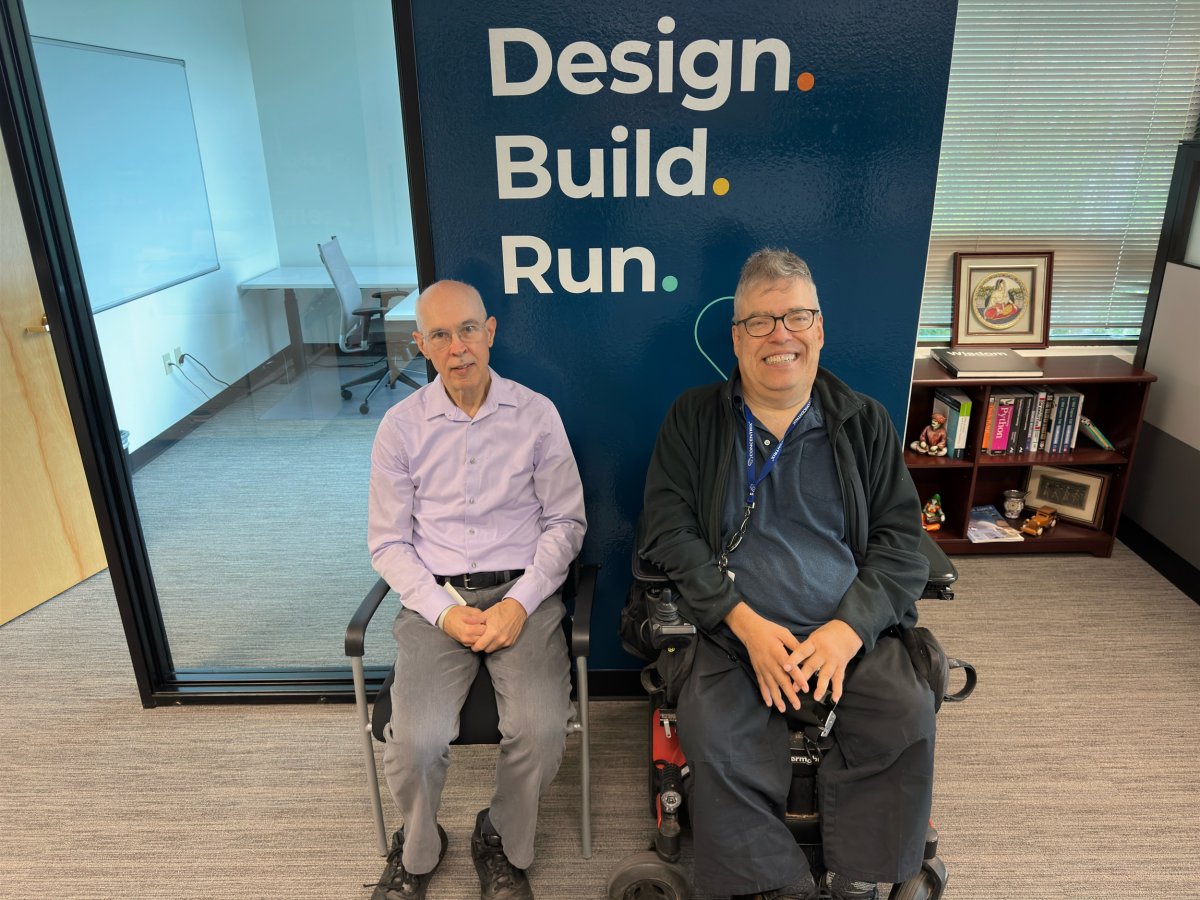National Disability Employment Awareness Month is celebrated in October to recognize the value and talent that workers with disabilities add to the economy and workplaces across America.
According to the U.S. Department of Labor, leading companies in disability inclusion had 1.6 times more revenue, 2.6 times more net income and twice as much economic profit as those that don’t lead in the field.
Newsweek recently published its first ranking of America’s Greatest Workplaces for People with Disabilities 2024/2025 to highlight the 250 companies across various industries that have excelled in creating a positive workplace for individuals with disabilities.
Disability could mean mobility issues that require a wheelchair or walker, vision or hearing loss, autism or intellectual disabilities. This also includes temporary or short-term disabilities like a broken bone from an accident or an illness like cancer that may require leave or special accommodation.
Ron Padrón, the director of diversity, equity and inclusion at the University of Maryland (UMD), said disability is not something people expect to happen to them and that there is often a lack of understanding about what disability actually means.
“I think folks think disability is something that is entirely debilitating,” he told Newsweek in an interview. “Disability just means something that impairs your ability to function at what is considered to be your normal level of production, output or engagement in some sort of activity. It could be a long-term, permanent disability or short-term disability.”
As a leader of diversity and inclusion on UMD’s campus, Padrón wants to increase awareness of disability. The University of Maryland was given a five-star rating on Newsweek‘s ranking of the greatest workplaces for people with disabilities. To compile this ranking, more than 24,000 employees with disabilities were surveyed, in addition to research into companies’ programs, benefits, work environment and corporate reputation.
Padrón said that we’re all bound to be part of a disabled category “at some time or another” through physical or mental aging or accident.

Disabilities are something everyone should be aware of—not just because they may impact you or someone you know, but because supporting disabled co-workers can make the entire workplace better. Diversity and inclusion have been found to be beneficial to workplace culture and overall resilience and productivity.
While many companies have integrated their diversity, equity and inclusion policies related to gender, race and sexuality into hiring and employee support programs, disability is often left out of the conversation.
In 2023, people with disabilities accounted for about 13 percent of the population, according to the U.S. Bureau of Labor Statistics. Half of all people with disabilities are aged 65 and older. The employment rate of people with disabilities is lower than that for people with no disabilities, with 22.5 percent of people with disabilities employed in 2023 compared to 65.8 percent of people with no disabilities, according to the BLS.
Georgina Dodge, the vice president for diversity and inclusion at UMD, told Newsweek that her office encourages people to consider diversity in the hiring process and encourages employees, managers and supervisors to understand the value diversity brings.
“It is so important to bring together people who have different perspectives, who have different experiences, who have different knowledge bases and who want to solve problems differently,” she said.
Diversity initiatives not only help companies internally, but they also help improve operations externally to customers, clients and other stakeholders.
GoDaddy is a web-hosting and domain registrar that helps people build websites and support their businesses—it earned four and a half stars on Newsweek‘s ranking. The company’s mission is to “empower entrepreneurs everywhere, making opportunity more inclusive for all.” GoDaddy’s head of diversity, equity, inclusion and belonging, Kristy Lilas, told Newsweek that this guiding principle is built into every aspect of the company.
“Because we have millions of global customers all around the world [with] all different types of identities and experiences and backgrounds, we need to have folks who have some semblance of understanding of what those varied experiences might be,” Lilas said.
Lilas added that there are trainings and open conversations to bring awareness and establish lines of communication for all employees to share resources and build camaraderie.
She said GoDaddy’s biggest priority is “to build [a] workplace that sets all of us up for success, no matter who we are or where we come from, or what we’ve experienced.” The best way to meet the needs of people with disabilities in the workplace, Lilas said, is to foster conversations between employees and leadership and establish employee resources to create support systems and opportunities for feedback.

The technology and software company Concentrix strives to hire people with disabilities and bring different viewpoints to the team that can encourage innovation and creative problem solving. The company received a five-star rating on Newsweek‘s ranking.
“We create customer experiences for our clients,” Marce Brown, the senior vice president of North America Delivery & Operations at Concentrix, told Newsweek. “By having a diverse employee base, it allows us to really cut the customer journey in different ways as well.”
After an employee is hired, Concentrix ensures they are supported at work. This includes advocating for the individual needs of employees, establishing employee resource groups and making accommodations for employees that comply with the Americans with Disabilities Act, which ensures equal access and opportunities for people with disabilities in all aspects of life, including employment.
Christopher Redmond is a senior business intelligence consultant at Concentrix. Seven years ago, he was diagnosed with Parkinson’s, a chronic disease impacting the nervous system that affects movement and worsens over time.

Concentrix
He told Newsweek that his employer was able to accommodate a flexible work schedule to allow him to attend physical therapy for two hours in the middle of the day. He also experiences tremors as part of his illness, making typing and using a computer mouse difficult. Redmond said he was able to request a trackball to make navigating the cursor easier and is applying for audio software that can translate his speech to type.
Redmond admits that he didn’t consider himself disabled until recently, after a representative from the company offered him new equipment to help him type.
“I’m still able to service my clients because it’s not affecting me cognitively,” he said. “It just takes me longer because of the keyboard.”
Padrón, of the University of Maryland, said employers need to acknowledge that people need support, patience and flexibility as they navigate a disability that they did not anticipate having. There is oftentimes a long period between when the symptoms of a disability present themselves and when an official diagnosis is made, which Padrón said can be filled with stress and anxiety.

John Consoli
Padrón himself identifies as a person with a disability. He has a chronic gastrointestinal and inflammatory condition that took years to diagnose.
“There was a period of time when the flare ups were really bad—I was using a cane,” he said. “So mentally for me, just going from somebody who has always been pretty healthy, pretty fit, pretty physically able to suddenly using a cane, there was a lot of mental, emotional and physical stress from the illness itself.”
On the University of Maryland’s campus, Georgina Dodge works with both disabled students and faculty, which she said supports improved operations as well as enables compassion.
“It helps develop your empathy and it reminds you that we’re all human in different ways,” she said. “That is really critical.”


